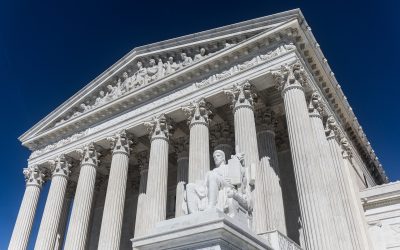In May, a federal appeals court upheld a Texas law that prohibits social media platforms like Facebook, Twitter, and YouTube from discriminating against users based on their ideas. In prohibiting such actions, Texas has declared war on free speech.
Proponents of the law claim that social media companies are guilty of censorship when they block, remove or otherwise interfere with a user’s expression of his views. This claim perverts the meaning of “censor” and establishes the means for actual censorship.
Private companies cannot threaten individuals with fines or jail time for expressing certain ideas. Government can.
Private companies cannot stop an individual from expressing his ideas through other means. Government can.
Private companies cannot censor. Government can.
Equating the actions of private actors with those of the government is inaccurate, misleading, and dangerous.
Even if every social media company banned an individual from using their platform, that person has myriad other avenues available to express his ideas. He can start his own website or blog. He can write for magazines and newspapers that share his ideas. He can write books and give speeches. Social media companies cannot stop him from doing any of these things. Government can.
Ironically, conservatives fought for the repeal of the Fairness Doctrine, which forced broadcasters to air both sides of an issue. The repeal of that regulation allowed Rush Limbaugh, as well as other conservatives, to express his views without sharing his microphone with those he disagreed with. Today, conservatives are fighting to apply their version of the Fairness Doctrine to social media companies. They want to force social media companies to allow ideas with which they disagree. The Fairness Doctrine was wrong when it was applied to broadcasters, and it will be equally wrong if it is applied to social media companies.
Social media companies, like all property owners, have a moral right to establish the terms and conditions for entering or using their property. A book publisher has a right to publish only those books that express ideas with which he agrees. The owner of a lecture hall has a right to hire speakers who share his ideas. Social media companies also have a right to determine what they find acceptable and what is not acceptable.
I do not like many of the decisions made by social media companies regarding the expression of ideas. In fact, I don’t like the decisions made by many businesses and individuals regarding the expression of ideas. However, they have a right to use their property as they choose, no matter who or how many object.
If a business establishes terms and conditions that we find unacceptable, we are free to take our patronage or employment elsewhere. The same is true with social media. If we don’t like the terms and conditions that those companies establish, we are free to take our ideas elsewhere.
Free speech protects the freedom of individuals to express and support the ideas of their choosing without reprisal or punishment from the government. This includes refusing to express or support ideas one finds objectionable. Property rights protect our freedom to use our property to express or support the ideas of our choosing. The new Texas law violates both free speech and property rights.
Defenders of the law argue that social media companies are “common carriers,” a status that is applied to a person or business that transports goods or people and offers services to the general public. A common carrier must offer its services without discrimination, and this serves as the justification for Texas’ war on free speech.
Morally, there is no rational justification for classifying any person or business as a “common carrier” and subject to government regulation. The fact that a company offers its services to the general public does not grant the government the power to dictate the terms and conditions of those services.
The alleged defenders of the free market seek to use the “common carrier” argument to control those with whom they disagree. The fact that Texas wants to enact restrictions on free speech is abhorrent enough. That those restrictions are advanced under the banner of free speech is intellectually dishonest.
Social media companies are not a threat to free speech. Government is.




